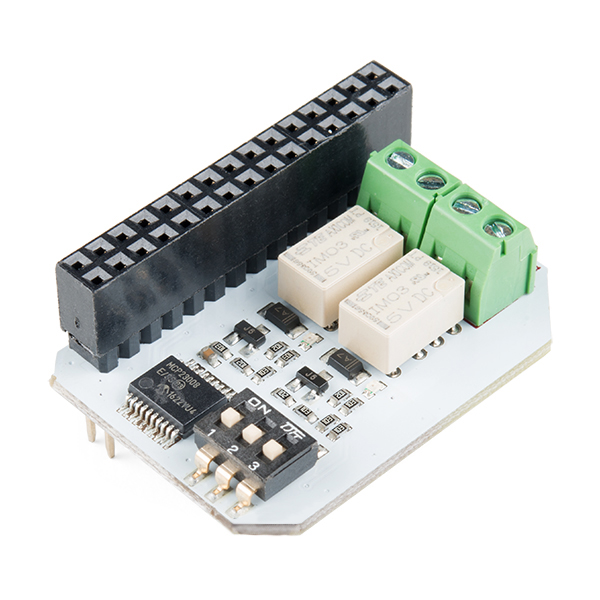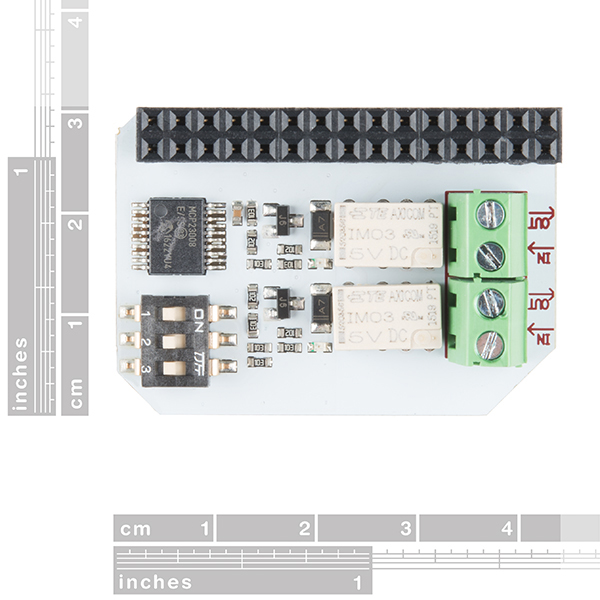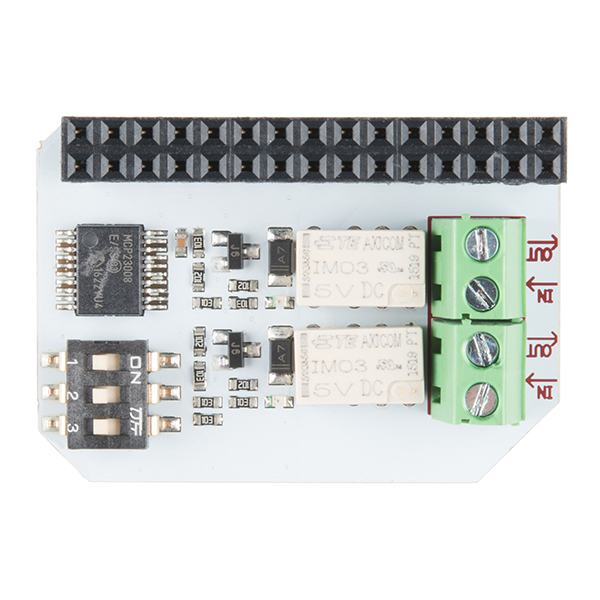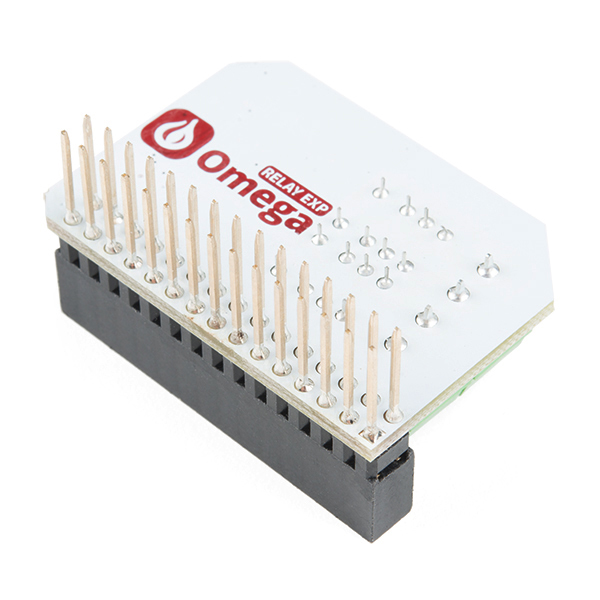Relay Expansion Board for Onion Omega
The Relay Expansion Board enables your Omega to control two other independent electrical circuits. The circuits are isolated from the Omega and can operate at much higher or lower voltages, so you can control other circuits you’ve built or small household appliances rated up to 60W. The Relay Expansion Board is perfect for home automation projects because it gives you the ability to control other devices remotely using your Omega.
Each Relay Expansion Board features two electromechanical relays that can switch up to 60W and are rated for a maximum current of 2A with a maximum voltage of 220VDC or 250VAC. The screw terminals allow you to connect a variety of different cables, leads and wires. This expansion board also comes with a 3-bit address switch, allowing you to use up to eight relays with a single Omega, meaning you can control up to 16 devices with just one Omega!
The Onion Omega boards we carry are separated into three different categories: Mainboard, Dock and Expansion Board. This board falls into the Expansion Board category, meaning you will need an Omega Dock that is equipped with a 30-pin Expansion Header like the Expansion Dock or Arduino Dock R2.
- Number of Relays: 2
- Relay Max Voltage: 250VAC
- Relay Max Current: 2A
- Relay Max Switching Power: 60W, 62.5VA
- Relay Typical Switching Time: 1ms
- Relay Max Switching Time: 3ms
- 30-pin Expansion Pins
Relay Expansion Board for Onion Omega Product Help and Resources
Core Skill: DIY
Whether it's for assembling a kit, hacking an enclosure, or creating your own parts; the DIY skill is all about knowing how to use tools and the techniques associated with them.
Skill Level: Noob - Basic assembly is required. You may need to provide your own basic tools like a screwdriver, hammer or scissors. Power tools or custom parts are not required. Instructions will be included and easy to follow. Sewing may be required, but only with included patterns.
See all skill levels
Core Skill: Programming
If a board needs code or communicates somehow, you're going to need to know how to program or interface with it. The programming skill is all about communication and code.
Skill Level: Rookie - You will need a better fundamental understand of what code is, and how it works. You will be using beginner-level software and development tools like Arduino. You will be dealing directly with code, but numerous examples and libraries are available. Sensors or shields will communicate with serial or TTL.
See all skill levels
Core Skill: Electrical Prototyping
If it requires power, you need to know how much, what all the pins do, and how to hook it up. You may need to reference datasheets, schematics, and know the ins and outs of electronics.
Skill Level: Competent - You will be required to reference a datasheet or schematic to know how to use a component. Your knowledge of a datasheet will only require basic features like power requirements, pinouts, or communications type. Also, you may need a power supply that?s greater than 12V or more than 1A worth of current.
See all skill levels
Comments
Looking for answers to technical questions?
We welcome your comments and suggestions below. However, if you are looking for solutions to technical questions please see our Technical Assistance page.
Customer Reviews
No reviews yet.




